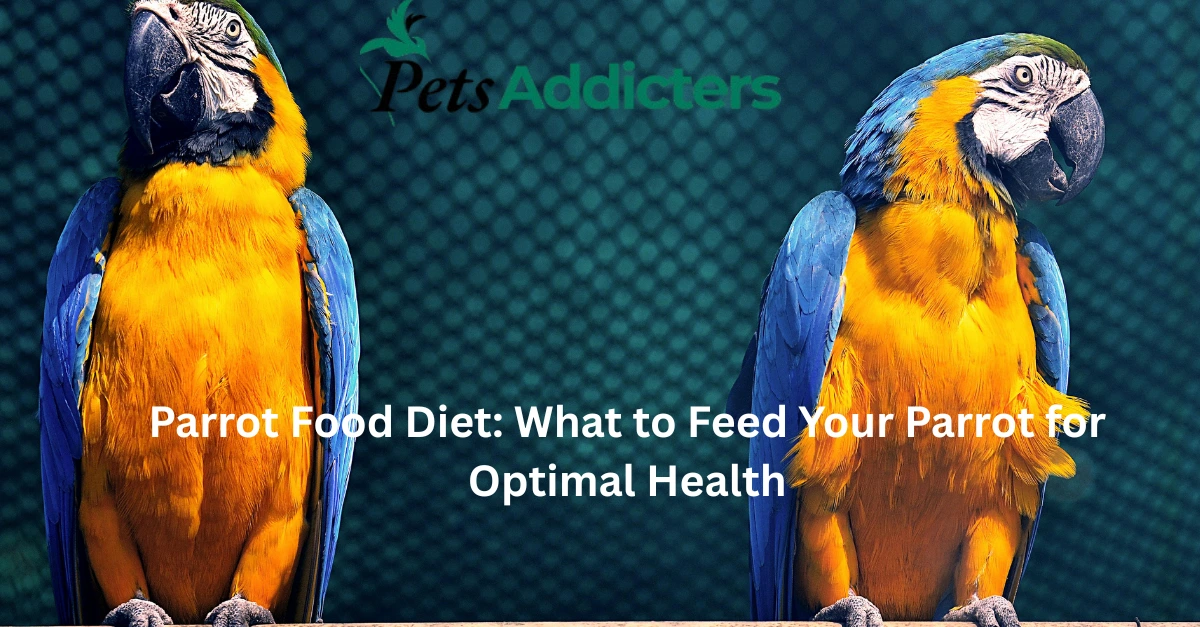Parrots are some of the smartest and most colorful pet birds, cherished for their antics and talkative abilities. But, like people, parrots require a good diet to remain healthy, energetic, and content. A bad diet can result in obesity, feather plucking, and even fatal illnesses. As a proper parrot parent, learning what to eat (and what not to eat) your parrot is the beginning of ensuring a long, healthy life.
In this guide, we’ll break down the essentials of a parrot’s food diet, the best choices for optimal health, and some feeding tips every owner should know.
Why a Balanced Diet Matters for Parrots
Parrots in the wild have a varied diet that includes fruits, nuts, seeds, flowers, and vegetation. Parrots in captivity, on the other hand, rely solely on what we give them. A pure seed or treat diet is not sufficient and will lead to nutritional deficiencies. A balanced diet benefits:
- Shiny, healthy feathers and skin
- Increases immunity and disease prevention
- Enhances energy, mood, and mind stimulation
- Aids strong bones and beak health
Core Parrot Diet Components
- Pellets (50–70% of Parrot’s Diet)
High-quality pellets are the recommended base for a parrot’s diet according to veterinarians. Unlike seeds, pellets are balanced nutritionally and lower the risk of finicky eating. Harrison’s, Roudybush, or ZuPreem are good examples of suitable brands.
Tip: Gradually introduce pellets, as a few parrots are resistant to seed switching.
- Fresh Fruits (10–20% of Parrot’s Diet)
Fruits offer vitamins, minerals, and natural sugars. Safe choices include:
- Apples (seeds removed)
- Bananas
- Mango
- Papaya
- Berries
- Oranges
⚠️ Do not feed avocado and fruit seeds to parrots, as these are toxic.
- Fresh Vegetables (10–20% of Diet)
Vegetables are important for offering fiber and antioxidants. Parrots tend to like:
- Carrots
- Sweet potatoes
- Kale and spinach
- Peas
- Bell peppers
- Broccoli
Steam or chop vegetables into small, bite-sized pieces.
- Seeds and Nuts (Treats Only)
Seeds and nuts contain a lot of fat. Although parrots enjoy them, they can only be fed as an occasional treat or reward during training. Almonds, walnuts, and sunflower seeds are acceptable in moderate amounts.
- Grains and Legumes
Brown rice, quinoa, oats, and lentils can provide variety and protein for your parrot’s diet. These need to be well-cooked and served in small amounts.
Foods to Avoid in a Parrot Diet
Certain foods are toxic and must not be offered to parrots:
- Avocado
- Chocolate
- Caffeine
- Alcohol
- Onion and garlic
- Salty or sweet human snacks
- Feeding Tips for Parrot Owners
- Provide fresh water every day
- Rinse fruits and vegetables before serving
Switch foods to make meals interesting
Take away uneaten fresh food after a few hours to avoid spoilage
Check your parrot’s weight and change portions accordingly
Final Thoughts
A balanced parrot diet is all about moderation, variety, and balance. Mixing pellets, fresh veggies, fruits, and the rare treat, you can provide your feathered pal with just what it needs to live its best life. Don’t forget, a well-nourished parrot is not only healthier, but also more playful, active, and loving.
Your parrot relies on you for its meals so make each count!
Feline aggression can be infuriating, but it usually means that your cat is frightened, stressed, or ill. By learning the reasons and using the proper remedies from offering sanctuaries to consulting with a doctor you can make your cat feel more relaxed and at ease.
Remember: patience, consistency, and compassion are essential. With the proper tactic, the majority of cats are able to break aggressive tendencies and become the loving pets we adore again.
What is the best diet for parrots?
The best diet for parrots is a balanced mix of high-quality pellets (60–70%), fresh vegetables, fruits, grains, and occasional seeds or nuts. This ensures they get all essential vitamins, minerals, and proteins.
Can parrots eat fruits every day?
Yes, parrots can eat fruits daily, but in moderation. Fruits like apples, bananas, grapes, and mango are safe. Avoid avocado, cherries, and fruit seeds, as they can be toxic.
Are seeds enough for a parrot’s diet?
No, feeding only seeds is unhealthy. A seed-only diet can cause obesity, liver disease, and nutritional deficiencies. Seeds should be offered as treats, not the main meal.
What vegetables are safe for parrots?
Safe vegetables include carrots, spinach, broccoli, kale, peas, zucchini, and sweet potatoes. Always wash thoroughly and serve raw or lightly cooked without salt or seasoning.
Can parrots eat human food?
Some human foods like plain rice, pasta, and whole-grain bread are safe in small amounts. However, avoid processed foods, chocolate, caffeine, alcohol, and salty or sugary items.

